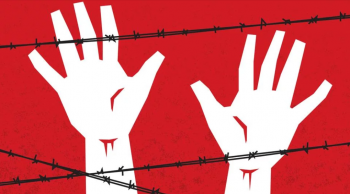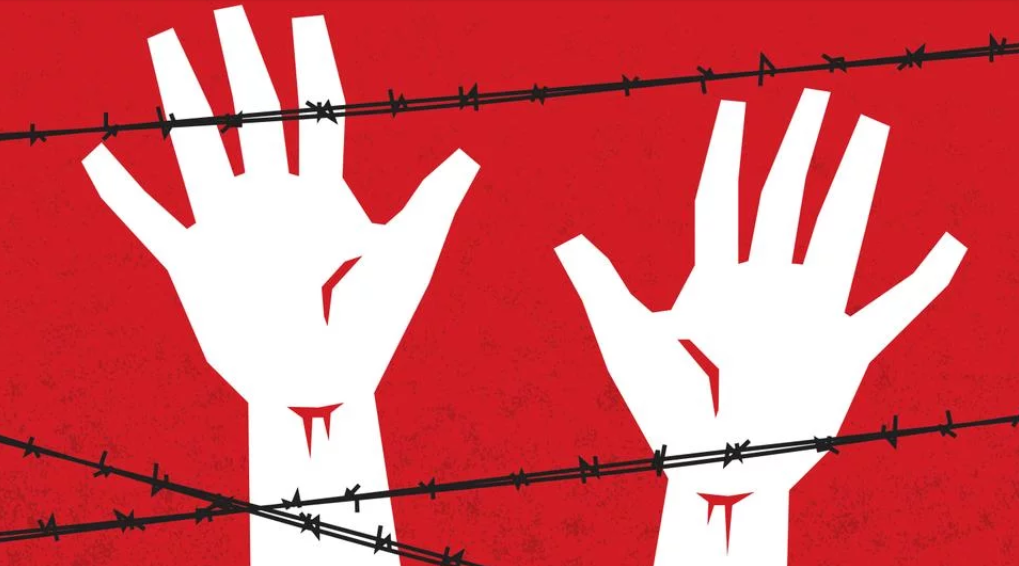
.png) Joseph Maliakan
Joseph Maliakan

First the Karnataka High Court and then the Delhi High Court through their path-breaking bail orders, in separate cases registered under various sections of the Unlawful Activities Prevention Act (UAPA), have given a much-desired boost to protection of the fundamental rights guaranteed by the Constitution of India. These rights have been blatantly violated by various state and central police agencies by falsely implicating people who are protesting against oppressive actions of the government and its agencies.
There has been more than 100 percent increase in the number of people arrested under various sections of the anti-terror law, the UAPA, in 2019, compared to the number of people arrested under the law in 2015. While 897 people were arrested in 2015, the number of arrests went up to 1948 in 2019. The highest number of arrests in 2019 was made in Uttar Pradesh which stands at 498, Manipur 386, Tamil Nadu 308, Jammu and Kashmir 227 and Jharkhnd 202. A total of 1,226 UAPA cases were registered in 2019 and the state-wise figures are: Manipur 306, Tamil Nadu 270, Jammu and Kashmir 255, Jharkhand 105 and Assam 87.
Granting statutory bail to 115 people arrested in connection with the March 2020 Bangalore riots, Justice Vishwajith Shetty of the Karnataka High Court, on 10 June 2021, said: “The fundamental right of an individual recognized under Article 21 of the Constitution of India cannot be defeated other than in accordance with law. Since the order passed by the trial court on the application filed by the prosecution seeking extension of time for completion of the investigation is already held to be bad in law, the statutory right has accrued to the petitioners immediately after the completion of 90 days period which right has been availed by them by filing an application under section 167 (2) of the Code seeking statutory (default) bail and also offering surety cannot be denied to the petitioners.”
The Delhi High Court’s meticulously written bail order on June 15 in the Unlawful Activities Prevention Act (UAPA) cases against three student activists should serve as a stern warning to the police across the country against wanton use of the penal provisions of the draconian Act. Justices Sidharth Mridal and Anup J. Bhambani in their order granting bail to Devangana Kalita, Natasha Narwal and Asif Iqbal Tanha in the Delhi riots conspiracy case under sections 15, 17 and 18 of the UAPA said: “We are constrained to express that it seems that in its anxiety to suppress dissent, in the mind of the State, the line between the constitutionally guaranteed right to protest and terrorist activity seems to be getting blurred. If this mindset gains traction it would be a sad day for democracy.”
Quoting Supreme Court order in the Hitendra Vishnu (TADA case), Justice Bhambani said that “it is not the intention of the Legislature that every criminal should be tried under TADA, where the fall-out of his activity does not extend beyond the normal frontiers of the ordinary criminal activity. Every terrorist may be a criminal but every criminal cannot be given the tag of a “terrorist” only to set in motion the more stringent provisions of TADA”.
“Our jurisprudence, therefore, dictates that where a provision of law which contains serious penal consequences is vague or widely worded, such provision must be construed narrowly to bring it within the constitutional framework and most importantly MUST BE APPLIED IN A JUST AND FAIR WAY lest it unjustly sucks within its ambit persons whom the Legislature never intended to punish. Where the court finds that an act or omission is adequately addressed and dealt with by the ordinary penal law of the land the court must not countenance a State agency ‘crying wolf’,” the order said.
Alleging extremely grave and serious penal offences under sections 15, 17 and 18 of UAPA against people frivolously would undermine the intent and purpose of the Parliament in enacting a law that is meant to address threats to the very existence of our nation. Wanton use of serious penal provisions would only trivialize them, the order warned.
The High Court further pointed out that the right to protest is not outlawed and cannot be termed as a terrorist act within the meaning of the UAPA, unless of course the ingredients of offences under sections 15, 17 and 18 of the UAPA are clearly discernable from the factual allegations contained in the charge-sheet and the material filed therewith. Mere use of alarming and hyperbolic verbiage in the charge-sheet will not convince the court, it added.
Upon closer scrutiny of the submissions made on behalf of the state we find that they are based upon inferences drawn by the prosecuting agency and not upon facts. In this context the High Court, very pertinently, noted that the CAA protests were not outlawed or banned. Also the student organizations which the accused are leading are not banned organizations.
Making inflammatory speeches and organising chakka jams would not amount to commission of a terrorist act or a ‘conspiracy’ or an ‘act preparatory’ to the commission of a terrorist act as understood under UAPA, the court held.
The judges further said that the foundations of our nation stand on surer footing than likely to be shaken by a protest, however viciously organized by a tribe of college students or other persons operating as a coordination committee from the confines of a University situated in the heart of New Delhi.
The Supreme Court refused to stay the bail granted to the students, but, surprising, the apex court said it was not satisfied with the interpretation of the provisions of the UAPA by the High Court. However, one hopes the High Court’s order will come as a great relief to more than 5,000 people arrested under various sections of the UAPA and languishing in jails.
While the court orders are extremely important to protect fundamental rights of the citizens we will have to device ways to make the police and the prosecuting agencies accountable for the misuse of penal provisions of the draconian law. Not only should the police and the prosecuting officials who deliberately make false submissions be punished but the victims who undergo contemptible torture and incarceration should be adequately compensated.